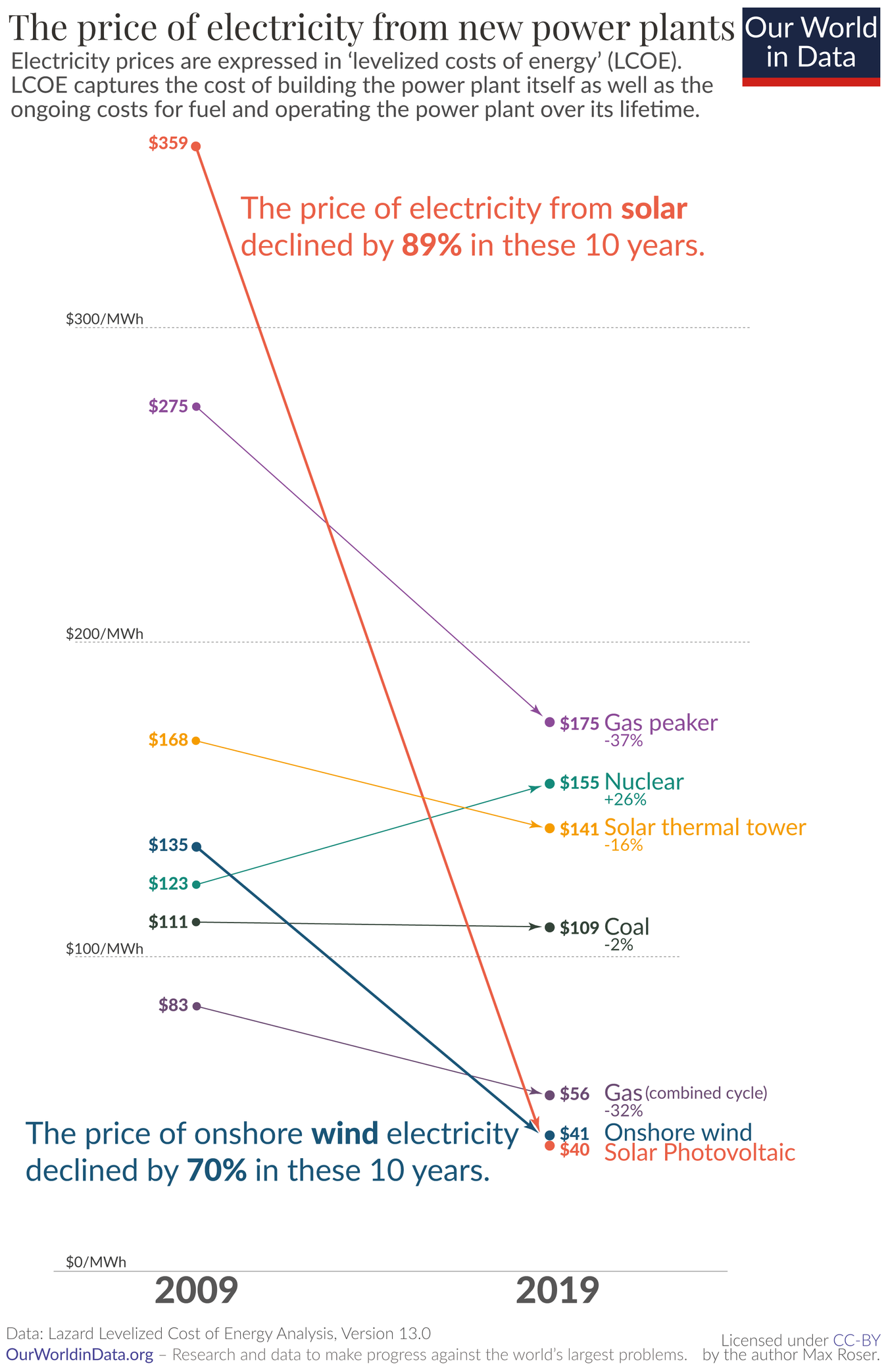Technology
This is the official technology community of Lemmy.ml for all news related to creation and use of technology, and to facilitate civil, meaningful discussion around it.
Ask in DM before posting product reviews or ads. All such posts otherwise are subject to removal.
Rules:
1: All Lemmy rules apply
2: Do not post low effort posts
3: NEVER post naziped*gore stuff
4: Always post article URLs or their archived version URLs as sources, NOT screenshots. Help the blind users.
5: personal rants of Big Tech CEOs like Elon Musk are unwelcome (does not include posts about their companies affecting wide range of people)
6: no advertisement posts unless verified as legitimate and non-exploitative/non-consumerist
7: crypto related posts, unless essential, are disallowed
view the rest of the comments

It was the answer. Now solar is so cheap that spamming panels and investing into ways to save the excess energy seems cheaper. By the time nuclear plants are done you're going to be at least 8 years into the future. Solar panels however are directly implementable. And even cheaper now.
Solar still doesn't work at all night, no matter how cheap it gets.
It's not very useful for most of Northern Europe and birth America during the winter months. Even if it was free you'd still need alternatives.
Yup, and you're not going to be able to make enough batteries, and if you could, it would be prohibitively expensive.
There are other options for energy storage, but they all have massive caveats. We'll need something reliable as a backbone until we find a good way to store power.
This is the issue: you can use batteries to store energy for the night during the day. Batteries that store over longer periods such as long cloudy spells and large seasonal differences are too expensive. On the other hand, on a global scale this is really mostly a concern in Northern Europe (where I happen to live).
Even overnight storage is expensive.
But yes, it needs to work in both the summer and the winter, so anything not at the equator is going to have seasonal challenges. I'm excited about a lot of innovating battery proposals, such as stacking heavy boxes and hydrogen generation, but none of those are anywhere near capable of production scale. The massive gorilla in the room is using EV batteries during the night and recharging them during the day (the car would reserve enough for your morning commute), but that's largely theoretical and charging infrastructure is far from sufficient to make that work at scale (not to mention I don't think there are enough EVs). We have trouble making enough batteries to keep up with EV demand, so there's no hope of using conventional batteries to actually transition a large countries anytime soon.
So until we solve those problems, we need an energy backbone. Nuclear is a great option, especially if we can destigmatize it so construction can be cheaper. I live in an area that would be perfect for it (Utah USA, just stick it in the desert on the other side of the mountains), yet people keep blocking every proposal out of FUD. So a lot of our energy comes from coal and gas, and we sell a our excess to California, which is utterly stupid since we have geography that collects pollution and makes the air unhealthy to breathe.
Sweden represent :,(
Scotland has been meeting pretty much its entire energy demand with renewables for a good while now, because there are options other than solar, primarily wind
Renewables. Not solar.
8 years is a drop in the bucket when it comes to long term production.